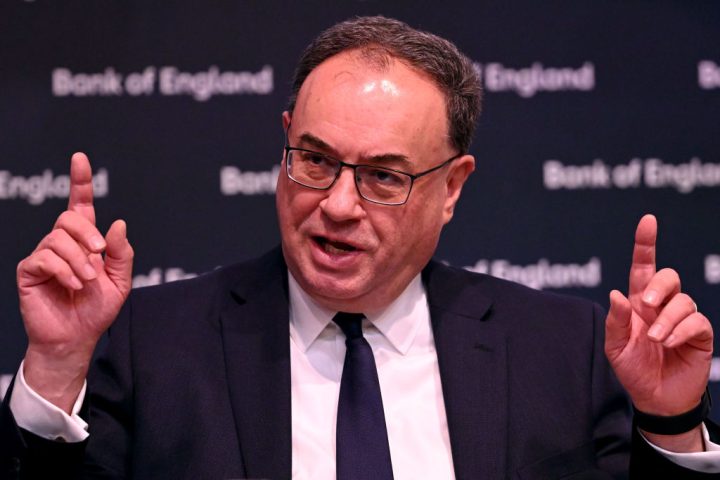Markets expected another interest rate rise today of 50 basis points. That’s exactly what they got. This afternoon the Bank of England has announced its tenth rate rise in a row, from 3.5 per cent to 4 per cent.
The Monetary Policy Committee (MPC) voted 7-2 to raise rates to 4 per cent; two members voted to hold the bank rate at 3.5 per cent, exposing the dovish leaning that has been a feature of the MPC during the pandemic years. This created a credibility issue for the Bank, as it failed to act on inflation for so long, putting itself in a position of having to play catch-up with rates.
However, no member voted for a hike bigger than 50 basis points this time round, which suggests that sense of urgency to play catch-up has been (somewhat) lifted. The question now will be whether we get another hike to meet market expectation for one more quarter-point rate rise. Nothing in the Bank’s minutes ruled this out.
However, it was suggested that the Bank would need to see more evidence of ‘persistent pressures’ to keep tightening policy and raising rates. It’s also made clear that the MPC expects inflation to ‘fall quickly this year’ having updated its forecast. It now sees inflation dropping to 3 per cent in the final quarter of the year: still a percentage point above the Bank’s target.
With inflation appearing to have peaked already, standing at 10.5 per cent in the year to December (down from a high of 11.1 per cent in October), the MPC may conclude it’s done enough to curb price hikes.
In today’s press conference, the Bank's governor Andrew Bailey would not be drawn into taking any firm line on what will happen next. He noted that the fall in inflation was a ‘turning of a corner’ but said that it was too soon to declare victory. Core inflation – which excludes food and energy – stands at 6.3 per cent and remains a tricky issue. Prices in a variety of sectors have risen dramatically, made much worse by the UK’s labour shortage and the stress on domestic services. The MPC admits in its minutes that these domestic inflationary pressures have been ‘firmer than expected.’
All this could end up persuading the Bank to go for another round of rate hikes – as its new forecast for economic growth might give the MPC room to do so. While the MPC suggests that last year’s Autumn Statement has had very little impact on inflation (raising queries, yet again, as to why the government tries to insist these days that it can control inflation), changes over the past few months (including curbing interest rate expectations) have improved the Bank’s forecast around recession.
The BoE is still expecting a formal recession to take place, but a shallower one, with a 0.3 per cent fall in GDP in Q1 this year – half of what it was expecting in November. Its overall forecast is more positive, too. The Bank now expects a 0.8 per cent contraction between the final quarter of last year and first quarter of next year, compared to a contraction of 2.9 per cent over eight quarters that it predicted last autumn.
This shorter and shallower timeline means there is real scope for government policy to change the UK’s economic growth trajectory. Good news, on the face of it, but this heightens pressure on the government to deliver.







Comments